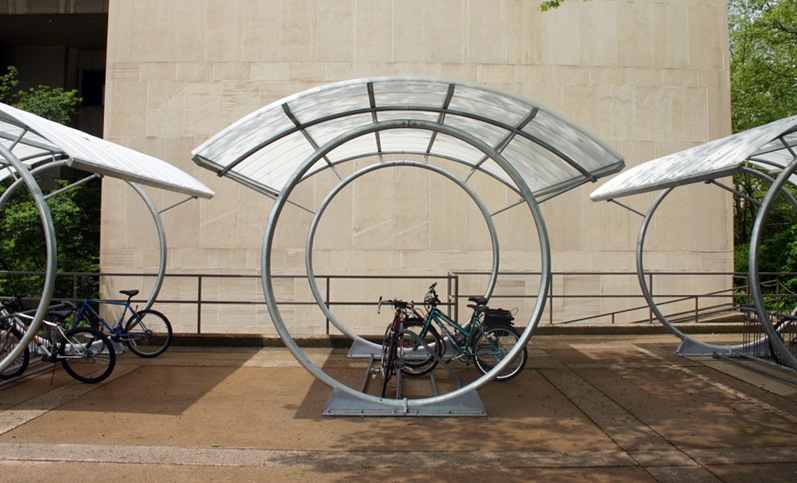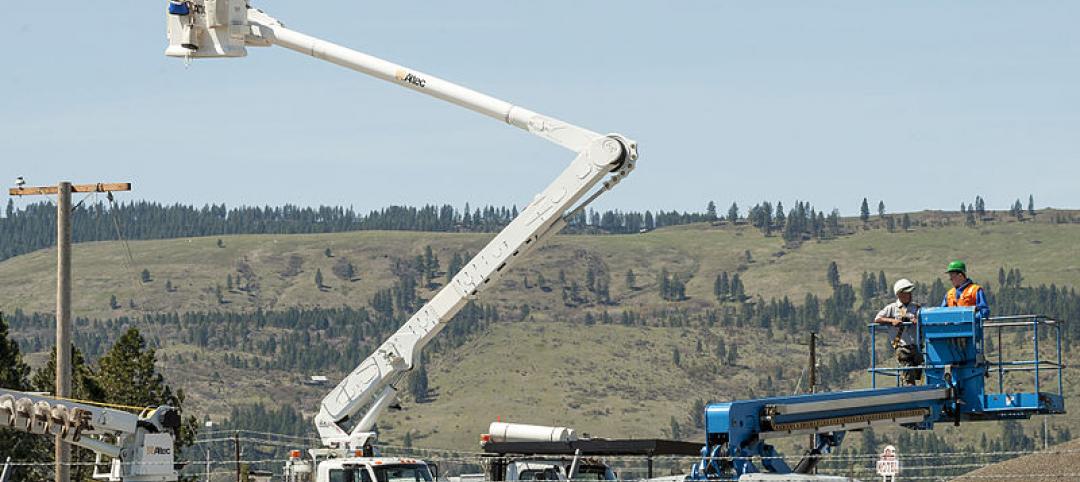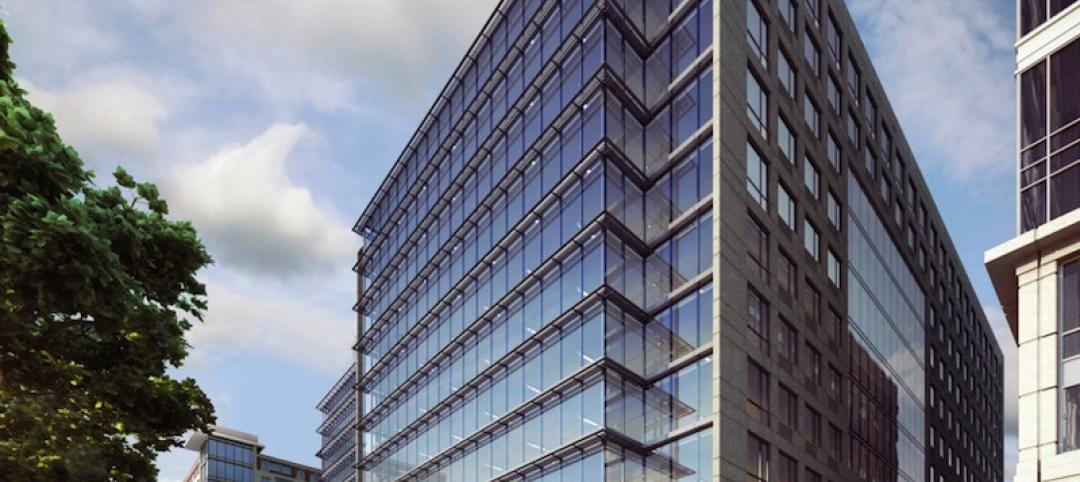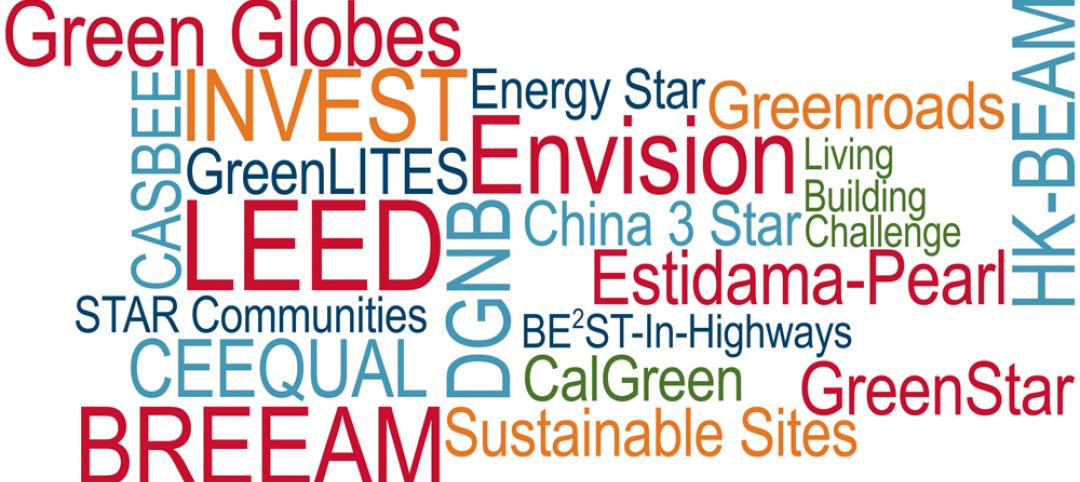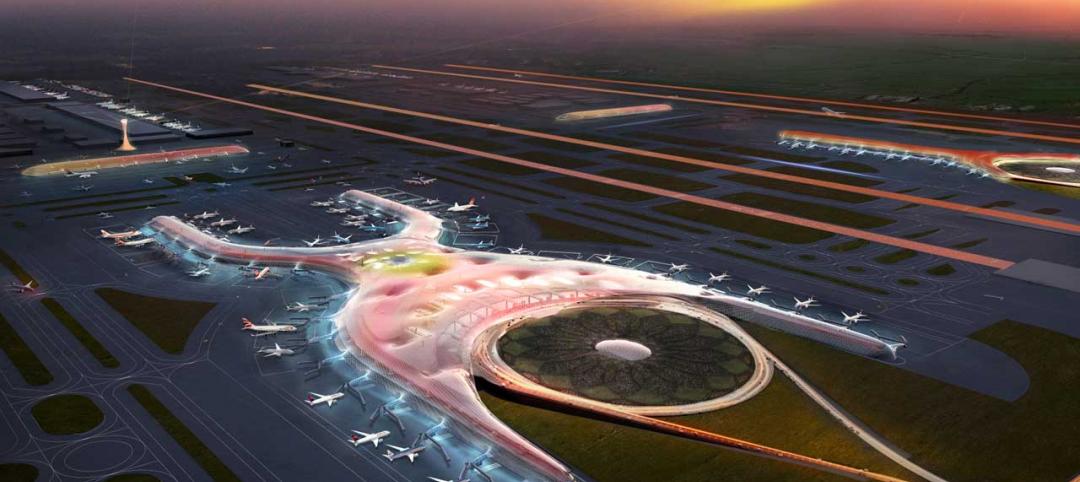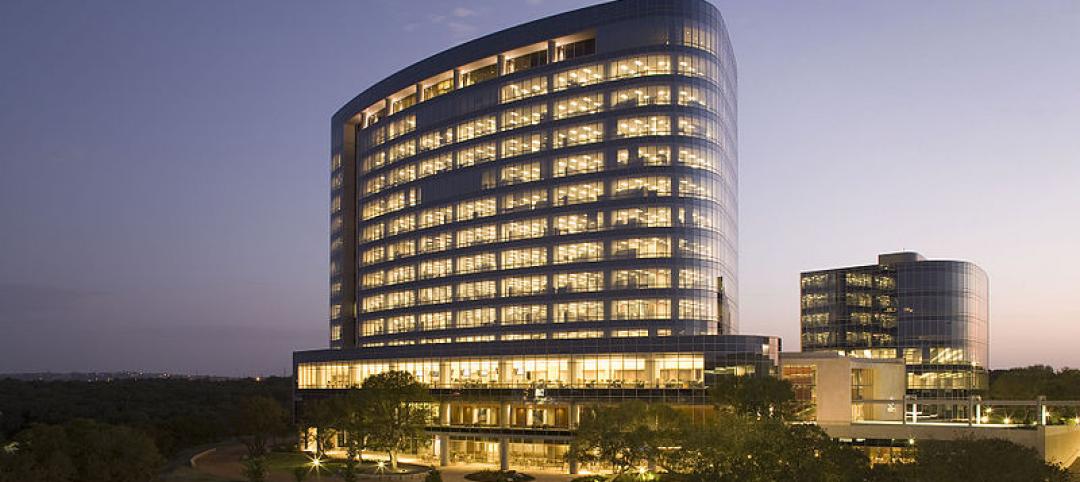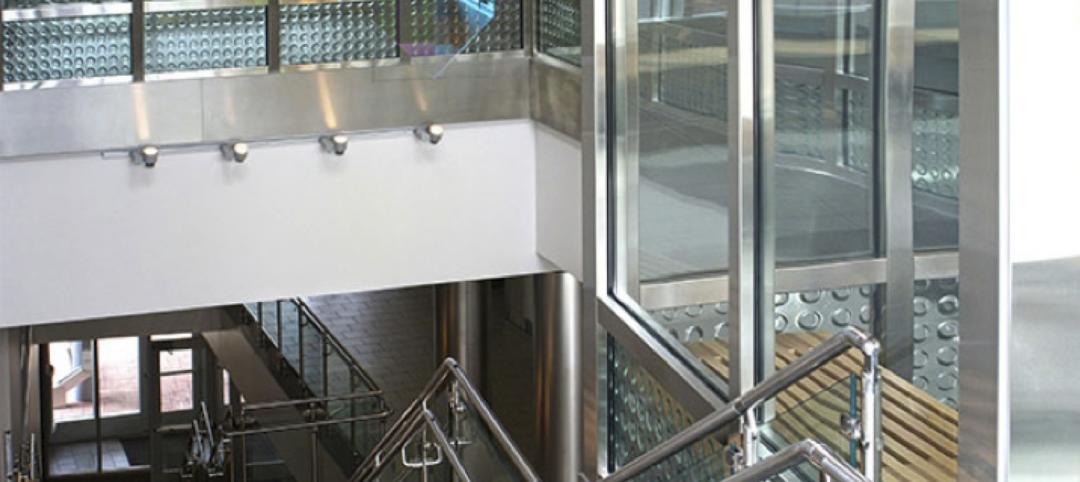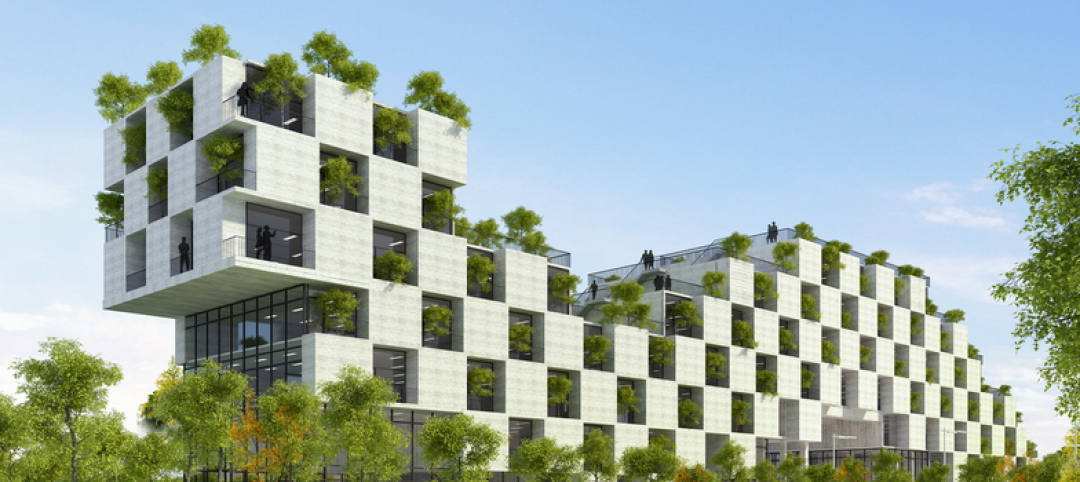Every year, BuildingGreen names the ten best green building products that, as the publication states, “transform the design and construction industry” by helping to solve environmental problems, from reducing greenhouse gas emissions to finding durable and safe materials.
A urinal, bike rack, ventless dryer, and a chair made of mushroom roots made the cut. For more on this year’s list, click here. Here are the 2014 and 2015 editions.
Honeywell’s Solstice Liquid Blowing Agent — Based on hydrofluoroolefin technology, it replaces a high global warming potential blowing agent, HFC-245fa, found in spray polyurethane foam. Solstice has a 100-year GWP of 1, which means it is equal to carbon dioxide in terms of global warming potential. The product is used by Whirlpool in appliance lines, as well as for Lapolla’s Foam-Lok 2000 4G SPF wall insulation, and Henry-West Development Group’s 3012-EB-3 SPF roof insulation.
Whirlpool HybridCare Ventless Clothes Dryer — The ventless heat-pump dryer improves efficiency by using a refrigeration loop that condenses moisture from the drum and returns excess heat energy. HybridCare saves on HVAC energy, providing 40% energy savings over a standard dryer.
Sloan Hybrid Urinal — The urinal uses a water-free cartridge and automatic rinser to keep it clean and odor-free. The unit’s Velocity cartridge pumps liquid through it and out the drainpipe, lessening buildup, while a water solution called Jetrinse is flushed every 72 hours to keep solids from forming in the housing and drain line.
Gunlocke Savor Guest Chair with Ecovative MycoBoard Backing — This guest chair is made from an engineered-wood alternative made from mushroom mycelium, a root, and is as strong and stable as a standard plywood- or particleboard-backed chair.
Duo-Gard Bike Racks and Shelters — The racks can be incorporated into a building to help it achieve LEED status. The shelters’ roofs are made of standing-seam metal or polycarbonate, and walls are made of polycarbonate, safety glass, perforated metal, or steel or aluminum mesh. Photovoltaic panels and LED lighting can also be included.
NuLED Power over Ethernet (PoE) Low-Voltage LED Lighting — The system uses DC power from a standard PoE network, and it can monitor and control LED power consumption and color temperature, all with less energy loss than AC systems.
Personal Comfort Systems Hyperchair — When HVAC systems can’t accommodate everyone’s preferred indoor temperature, this office chair provides personal heating and cooling powered by a lithium ion phosphate battery and controlled by a panel on chair’s arm.
Unity Homes High-Performance Panelized Homes — The high-performance panelized home system uses computer numeric control equipment to help create panelized wall systems and small prefab room modules to minimize thermal bridging. Unity Homes use energy-saving insulation and FSC-certified wood with low-VOC finishes.
Sanden Heat Pump Water Heater with CO2 Refrigerant — This heat-pump water heater uses CO2 as a refrigerant and creates water temperatures high enough for hydronic heating. It can deliver around 16,000 Btu/hr and can produce 149°F water.
Tesla Powerwall and Powerpack Onsite Energy Storage — The rechargeable lithium-ion battery system incorporates liquid thermal management, battery management, and a DC–DC converter. It has a 10 kWh unit optimized for weekly or backup use and a 7 kWh unit for daily use.
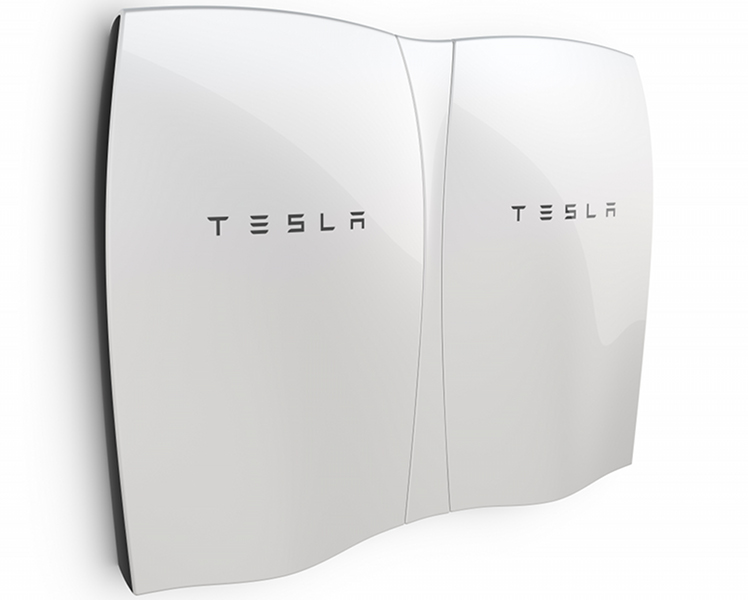 Tesla’s Powerwall and Powerpack. Photo: Tesla (via BuildingGreen).
Tesla’s Powerwall and Powerpack. Photo: Tesla (via BuildingGreen).
Related Stories
| Oct 2, 2014
11 projects receive Affordable Green Neighborhoods grants from BoA, USGBC
Each of these neighborhood redevelopment projects are notable for their planned affordable housing, compact design, commitment to green building and sites located near transit or other existing amenities.
| Sep 29, 2014
Living Building vs. LEED Platinum: Comparing the first costs and savings
Skanska USA's Steve Clem breaks down the costs and benefits of various ultra-green building standards and practices.
| Sep 29, 2014
Report finds links between office design, health and productivity
A new report from the World Green Building Council finds “overwhelming evidence” to support office design as a significant influencer of the health, wellbeing and productivity of staff.
| Sep 16, 2014
Studies reveal growing demand for LEED-credentialed professionals across building sector
The study showed that demand for the LEED Accredited Professional and LEED Green Associate credentials grew 46 percent over a 12-month period.
| Sep 15, 2014
Sustainability rating systems: Are they doomed?
None of the hundreds of existing green building rating systems is perfect. Some of them are too documentation-heavy. Some increase short-term project cost. Some aren’t rigorous enough or include contentious issues, writes HDR's Michaella Wittmann.
| Sep 8, 2014
First Look: Foster + Partners, Fernando Romero win competition for Mexico City's newest international airport
Designed to be the world’s most sustainable airport, the plan uses a single, compact terminal scheme in lieu of a cluster of buildings, offering shorter walking distances and fewer level changes, and eliminating the need for trains and tunnels.
| Sep 7, 2014
USGBC + American Chemistry Council: Unlikely partners in green building
In this new partnership, LEED will benefit from the materials expertise of ACC and its member companies. We believe this has the potential to be transformational, writes Skanska USA's President and CEO Michael McNally.
| Sep 3, 2014
New designation launched to streamline LEED review process
The LEED Proven Provider designation is designed to minimize the need for additional work during the project review process.
| Aug 25, 2014
Glazing plays key role in reinventing stairway design
Within the architectural community, a movement called "active design" seeks to convert barren and unappealing stairwells originally conceived as emergency contingencies into well-designed architectural focal points. SPONSORED CONTENT
| Aug 12, 2014
Vietnam's 'dragonfly in the sky' will be covered in trees, vegetation
Designed by Vietnamese design firm Vo Trong Nghia Architects, the building will be made up of stacked concrete blocks placed slightly askew to create a soft, organic form that the architects say is reminiscent of a dragonfly in the sky.


